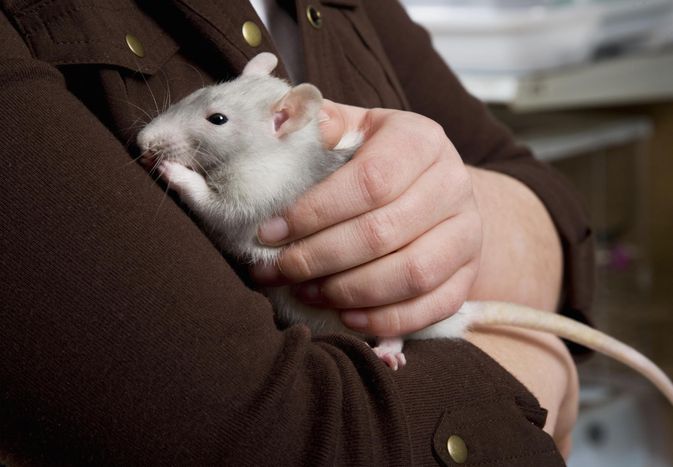
Early Signs of Dental Disease in Senior Dogs: What Every Owner Should Know
IntroductionAs our canine companions age, their oral health becomes increasingly vulnerabl...
Exotic pets – reptiles, amphibians, birds, and small mammals beyond cats and dogs – captivate many with their unique appeal. However, their specialized needs differ drastically from traditional pets. Over 60% of surrendered exotics stem from unprepared owners, reports the Association of Exotic Mammal Veterinarians. Before welcoming an unusual companion, confront these critical realities:
Parrots (Macaws, Cockatoos): 40-80 years – potentially outliving owners.
Tortoises: 50-100 years – requiring multi-generational planning.
Bearded Dragons/Leopard Geckos: 10-20 years – needing consistent habitat investment.
Hedgehogs/Sugar Gliders: 4-8 years – demanding specialized nocturnal care.
Commitment extends beyond feeding; it’s decades of environmental control, socialization, and veterinary access.
“Cute” doesn’t equate to “easy.” Each species has non-negotiable environmental parameters:
Reptiles/Amphibians: Precise temperature gradients (basking spots/cool zones), UVB lighting crucial for calcium metabolism (e.g., 10.0 UVB tube for desert species), humidity control (hygrometers essential), and species-specific substrates. Initial setup often exceeds $500.
Birds: Large flight cages (minimum wingspan x2), toxin-free toys for mental stimulation, varied perches to prevent bumblefoot.
Small Mammals (e.g., Ferrets, Chinchillas): Multi-level enclosures, dust baths (chinchillas), secure latches, and extensive daily out-of-cage time.
Finding an exotics-specialized veterinarian is paramount – and often challenging. Standard dog/cat vets lack necessary training. Expect:
Higher consult fees ($100-$250+ per visit).
Limited emergency services.
Complex diagnostics (e.g., radiographs for reptiles require specialized positioning).
Pre-adoption action: Locate your nearest certified exotics vet (check AEMV or ARAV directories) before adoption.
Forget commercial kibble. Exotic diets are intricate and often expensive:
Insectivores (Bearded Dragons, Hedgehogs): Require live gut-loaded insects (crickets, roaches, mealworms) dusted with calcium/D3.
Herbivores (Tortoises, Iguanas): Need diverse, fresh leafy greens/vegetables daily (collards, dandelion, squash).
Carnivores (Snakes, Some Monitors): Require whole prey (frozen/thawed rodents/birds).
Ethically source animals: Avoid wild-caught specimens contributing to ecosystem decline. Seek USDA-licensed breeders or reputable rescues providing full health history. Verify legality (local/state/national laws vary drastically – e.g., ferrets banned in California, permit needed for large constrictors).
Research species-specific behaviors:
Solitary Creatures (Leopard Geckos, Many Snakes): Stress easily with handling/cohabitation.
Highly Social Species (Sugar Gliders, Parrots): Suffer severe depression if kept alone; require same-species companionship (not human substitutes).
Nocturnal Animals (Hedgehogs, Hamsters): Disrupted sleep cycles cause illness if disturbed during daytime.
Natural Behaviors: Expect scent marking (ferrets), burrowing, vocalizations, or flight instincts.
Adopting an exotic pet is a profound responsibility, not an impulse decision. Thorough research into the species’ lifelong biological, environmental, and social needs is non-negotiable. Connect with species-specific societies, consult specialized vets, and honestly assess your resources. Choosing not to adopt if unprepared is the most compassionate choice for these remarkable creatures. Responsible ownership ensures their welfare and preserves wild populations.

IntroductionAs our canine companions age, their oral health becomes increasingly vulnerabl...

Cats are living longer than ever thanks to improved veterinary care and nutrition — but ...

IntroductionCats cannot speak our language, but their vocalizations convey nuanced message...

IntroductionMany pet owners wonder if it is safe for dogs to venture outside immediately a...

IntroductionCats communicate through subtle body signals—ear position, pupil size, and e...

IntroductionGardens can be a delightful outdoor extension of the home, but unprotected gar...

How to Handle Your Cat’s Litter Box Issues Like a ProPersistent litter box problems frus...

IntroductionHairballs (trichobezoars) are a common issue for domestic cats, especially tho...

Rats are smart and friendly, and they like to cuddle. They make great companion animals, ...
Comments on "Caring for Exotic Pets: What You Should Know Before You Adopt" :